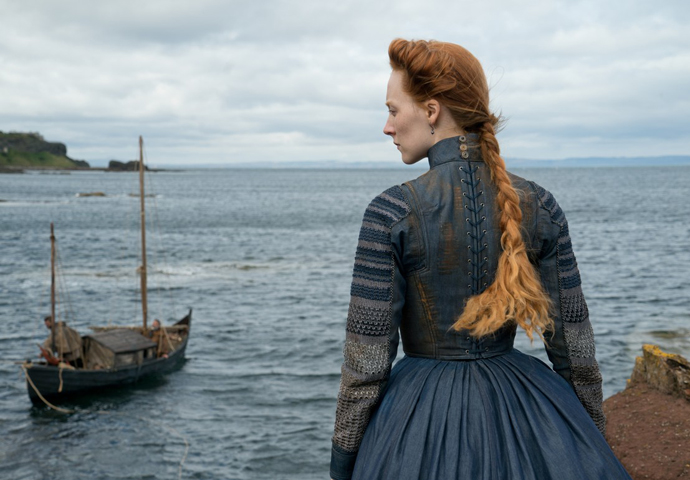Scots missed
Biopic has good leads and high production values, but is fatally undermined by its modernity
Friday, 18th January 2019 — By Dan Carrier

Saoirse Ronan in Mary Queen of Scots
MARY QUEEN OF SCOTS
Directed by Josie Rourke
Certificate 15
☆☆
WITH two good leads and high production values, this biopic of Mary, Queen of Scots should be both enlightening and entertaining.
Disappointingly, for a large part, it is as damp as a tramp across a foggy Scottish glen.
We meet Mary (Saoirse Ronan) as she arrives at Holyrood, returning from France following the death of her husband, Francis II. A new monarch, she faces a country riven with division. This was not helped by the fact south of the border is Queen Elizabeth, a popular head of state but one whose right to be on throne could be called into question. Mary might have a more legitimate right to rule England and added to this are various Scottish lords competing for power. It gives us gallons of backstabbing to play out.
The story rattles along as Mary marries her cousin Lord Darnley, who she hopes will father her an heir. But Darnley (Jack Lowden) is loathed by all, including Mary after he is caught in a compromising position with her friend, Italian courtier Rizzio (Ismael Cruz Cordova).
Sadly, Mary and Elizabeth are not truly brought to life. We do not get an inkling of the role God played in politics then, apart from some minor moments when tub-thumping dissenter John Knox (David Tennant) vaguely touches on the very real fears of Protestants that a popish coup might be on the cards.
Instead, it is lightweight. Forget the fact Mary glides through scenes as if she has been styled by Vogue magazine, while the male courtiers are gnarled and grizzled and muddy faced. Forget the important historical inaccuracies.
Mary and Elizabeth’s extraordinary lives feel reduced by giving them a contemporary twist: the script fails to make the required leap of imagination to take us back 400 years. By failing to understand the mindset of the period, its modernity fatally undermines it. Antonia Fraser’s history of Mary is a brilliant book, and the Scottish monarch’s horrendous beheading haunts the reader.
Here Mary’s death is almost a footnote. Considering she spends much of the film worrying about her safety, there is little about how she met her end and why – because too much time is taken up with repetitive, courtly nonsense.